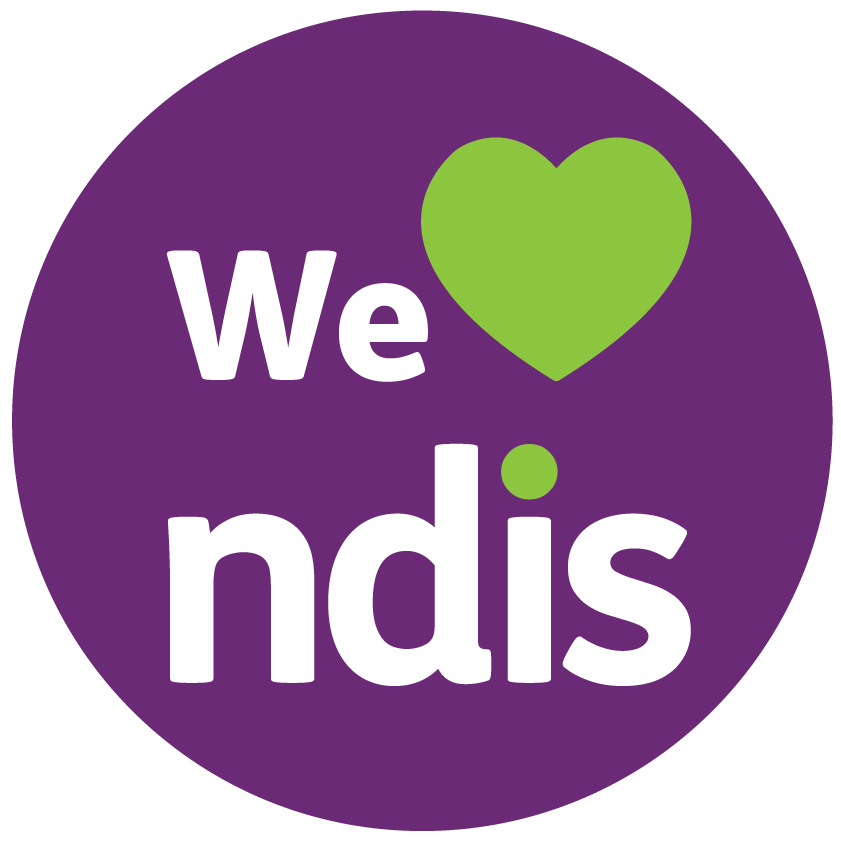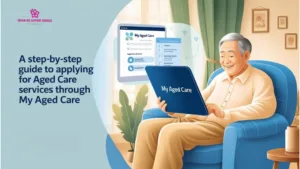Living with a disability can be challenging, but in Australia, the National Disability Insurance Scheme (NDIS) offers a helping hand. Funded by the government, NDIS provides support and services designed to boost your independence and overall well-being The difference is that a registered provider is approved by the National Disability Insurance Agency (NDIA) to support plan-managed participants, while an unregistered provider may not have received approval or may choose not to register with the NDIS.
Now, when it comes to choosing a NDIS provider, you have options! NDIS allows you to pick between registered and unregistered providers. But what’s the difference, and how does it affect the kind of care you or your loved one receive? Let’s dive in and explore these options to help you make the best decision for your disability support needs.
Regarding NDIS providers
NDIS providers play a crucial role in delivering disability services, ranging from personal care and therapy to community participation programs. NDIS providers are entities and individuals who offer assistance and services to NDIS participants, such as your loved one. These providers can range from companies and charities to non-profit organisations. They can also include individual practitioners.
NDIS providers fall into two categorised: registered and unregistered. The key difference lies in their approval status granted by the National Disability Insurance Agency (NDIA). A registered provider is the one who has undergone the NDIA’s approval process, allowing them to work with participants who manage their own NDIS plans. An unregistered provider, on the other hand, hasn’t obtained approval or have chosen not to register with the NDIS.
Registered NDIS Providers
As a registered NDIS provider, one undergoes an accreditation process to ensure they meet the standards set by the NDIS Quality and Safeguards Commission. This accreditation signifies that they adhere to strict guidelines regarding service delivery, safety, and quality.
Advantages of Registered NDIS Providers
Extensive Service Options
Registered providers go through a rigorous approval process, ensuring they can offer a wide range of disability support services. This includes specialist support, allied health services, and support coordination – all under one roof!
Confidence in Quality
When you choose a registered provider, you can be confident that they meet strict quality standards set by the NDIS. This ensures you receive high-quality care that caters to your specific needs.
Financial Transparency and Security
Registered providers understand NDIS funding and billing procedures. This means you can access the services you require with the assurance your NDIS funding covers the cost.
A Framework for Trust
Registered NDIS providers operate under clear guidelines established by the NDIS Commission. This ensures accountability and adherence to safety standards, providing a secure and trustworthy environment for receiving support.
Disadvantages of Registered NDIS Providers
While there are many advantages to becoming a registered NDIS provider, it’s important to understand the additional commitments involved:
Investment in Quality
Maintaining registration requires adhering to stricter compliance standards. This can involve ongoing costs for training, audits, and administrative processes.
Focus on Documentation
Registered providers need to maintain detailed records and complete more paperwork compared to unregistered providers.
Accountability for Service Delivery
There’s a higher level of accountability associated with being registered. If the quality of service falls short of NDIS standards, legal repercussions could arise.
Unregistered NDIS Providers
Unregistered NDIS providers operate without formal accreditation from the NDIS Quality and Safeguards Commission. While they may not have the same level of oversight as registered providers, they offer flexibility and cost savings that appeal to many individuals seeking disability services.
Advantages of Unregistered NDIS Providers
While registered providers offer certain guarantees, unregistered providers may have some appealing aspects to consider:
Tailored Support
Unregistered providers might emphasise a more personalised approach, catering their services directly to your specific needs and preferences. This can be attractive if you have unique requirements.
Cost-Effectiveness
Unregistered providers may have lower operating costs, allowing them to offer services at potentially lower rates or with discounts. This can be a deciding factor if budget is a major concern.
Adaptable Service
Unregistered providers might demonstrate greater flexibility in scheduling. They may be willing to provide services outside of typical business hours or offer services not commonly found with registered providers.
Quicker Access
In some cases, unregistered providers might be able to offer services more quickly, especially on short notice. This can be helpful if you have urgent needs.
Disadvantages of Unregistered NDIS Providers
While there can be advantages to being an unregistered NDIS provider, it’s important to consider the potential challenges:
Building Trust and Recognition
Participants may be more cautious when choosing unregistered providers due to the lack of NDIS approval. Establishing a strong reputation and clear communication of service quality becomes crucial.
Limited Growth Opportunities
Unregistered providers don’t have access to official NDIA participant lists, making it harder to find new clients and scale the business compared to registered providers.
Maintaining Quality Standards
The absence of NDIS audits and documentation requirements means unregistered providers need to be extra vigilant about maintaining high service quality on their own.
Balancing Quality and Risk
Without NDIS documentation requirements, there’s a potential for unregistered providers to prioritise lower costs over quality service. This could lead to situations where participant expectations aren’t met, increasing the risk of legal issues.
Choosing the Right NDIS Provider for You: Registered vs Unregistered
Think of registered providers as NDIS-approved partners. They go through regular checkups (audits) to ensure they meet strict quality and safety standards. This translates to peace of mind for you, knowing the NDIS Commission is keeping an eye on things. Plus, registered providers can directly access NDIS funding, streamlining the payment process. However, there’s a catch – registered providers have to follow the NDIS price guide, meaning you might not get the most customised service or the cheapest price.
Unregistered providers offer a more “freelance” approach. While they don’t have NDIS oversight, they can potentially offer more personalised care tailored exactly to your needs. They might also be more flexible with pricing, allowing for negotiation. However, the downside is the financial responsibility falls on you. You’ll need to manage your own budget, pay the provider directly, and hope the quality of service matches the price.
A quick comparison of the pros and cons of registered and unregistered NDIS providers to help you make an informed decision about your disability support needs.
| Aspect | Registered NDIS Providers | Unregistered NDIS Providers |
| Pros | Access to NDIA-managed participants | Quicker and easier startup process |
| Perceived as more trustworthy and credible | Lower costs without licensing or audit fees | |
| Higher quality service due to stringent NDIS standards | Direct interaction with participants, facilitating relationship building | |
| Quicker cash flow through NDIS portal | Ability to offer competitive prices | |
| Access to financing with detailed documentation | Greater flexibility in pricing, not bound by NDIS price guide | |
| Cons | Higher startup and ongoing costs for registration | Perception of being less trustworthy by participants |
| Stricter compliance requirements | Need to focus on building a strong community reputation | |
| Increased paperwork | Difficulty scaling without access to NDIA-provided lists | |
| Legal implications for substandard services | Risk of lower quality services and legal liabilities due to lack of documentation |
Key Insights
In the end, your priorities and preferences are what matter the most. However, it’s crucial to weigh the potential risks and benefits carefully before making a choice. At the same time, take the time to research and explore your options. Whether you opt for a registered or unregistered provider, prioritise open communication, and don’t hesitate to reach out to providers directly to learn more about their offerings and ensure that the provider understands your unique needs and aspirations.
Dream Big with Dream Big Support Service
At Dream Big Support Service, as a renowned NDIS provider Queensland, we’re the go-to hub for reliable disability support services, and we’re here to make sure you reach your goals, no matter how big they may seem. Our dedicated team unwavering support goes beyond the ordinary, guiding you through your journey with boundless ambition and dedication. As your chosen NDIS provider Toowoomba, we’re here to guide you through your journey. We’re not just here to offer ordinary assistance; we’re here to help you dream big and achieve even bigger. Let’s make those dreams a reality together!
NDIS Provider Registration
How to become an NDIS provider
How to become a registered NDIS provider
How to become an independent NDIS support worker
Becoming an NDIS provider
Becoming an independent support worker NDIS
How to become an NDIS support worker
NDIS registration requirements
NDIS provider registration
NDIS provider registration checklist
NDIS certification
NDIS accreditation
How long does it take to become an NDIS provider
How much does it cost to become an NDIS provider
NDIS registration cost
NDIS Business Registration**
Register for NDIS
How do I register for NDIS
NDIS business registration
How to start an NDIS business
How to start NDIS business
NDIS company
NDIS provider application
Registering for NDIS
How to register with the NDIS
How to register for NDIS
Register with NDIS
NDIS Providers**
Become an NDIS provider
Become NDIS provider
Becoming NDIS provider
NDIS registered
Registered NDIS
NDIS registered provider
NDIS registered providers
NDIS approved provider
NDIS approved providers
NDIS registered provider logo
Registered NDIS provider logo
NDIS registered service providers
Registered providers NDIS
NDIS provider qualifications
NDIS provider number
NDIS ROC
NDIS list of registered providers
Unregistered NDIS Providers
NDIS unregistered providers
How do unregistered NDIS providers get paid
How to become an unregistered NDIS provider
Unregistered NDIS provider
Unregistered NDIS providers
List of unregistered NDIS providers
Unregistered support coordinator
Unregistered aged care provider







